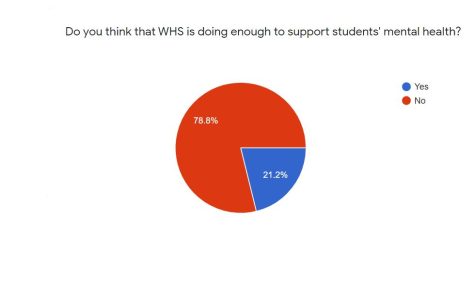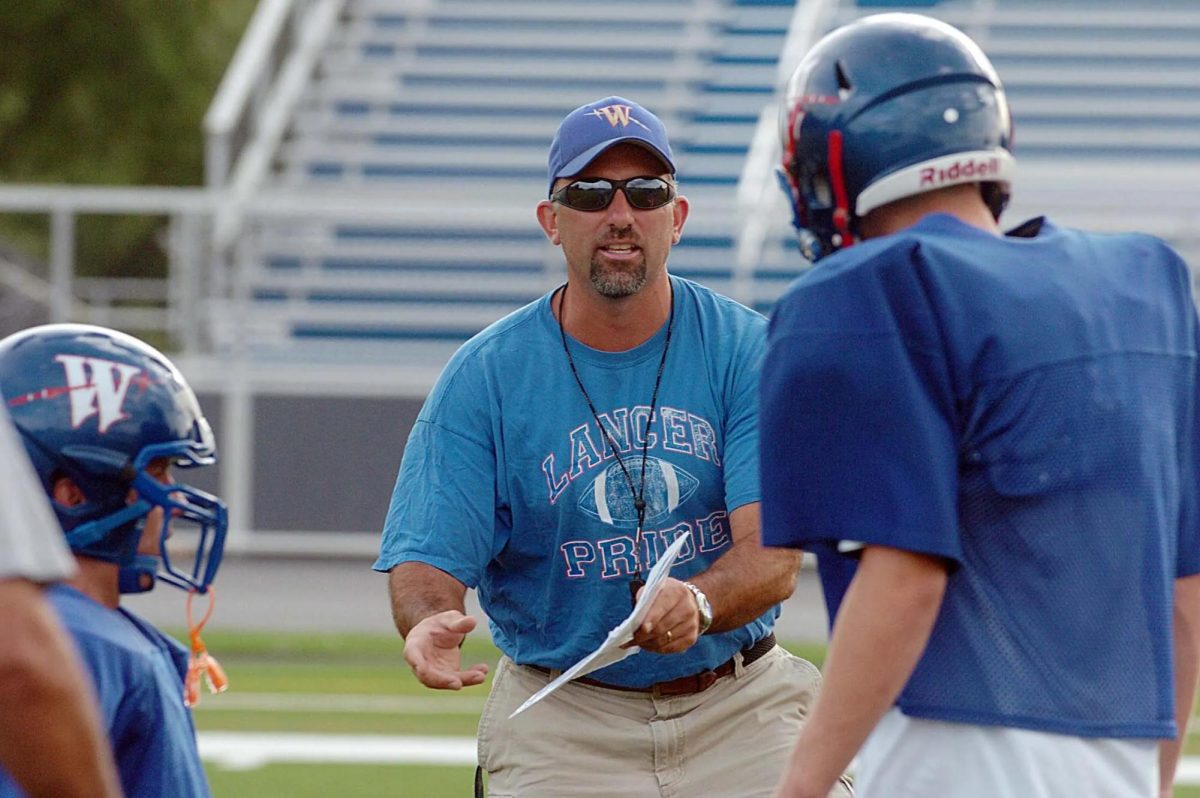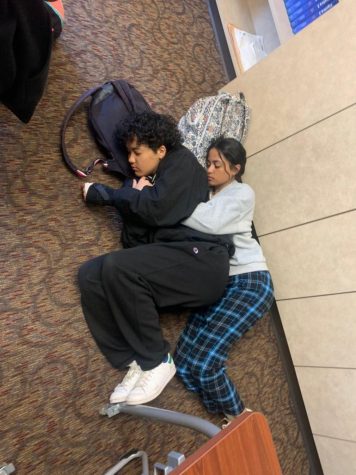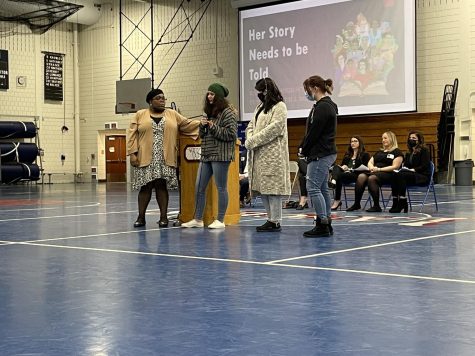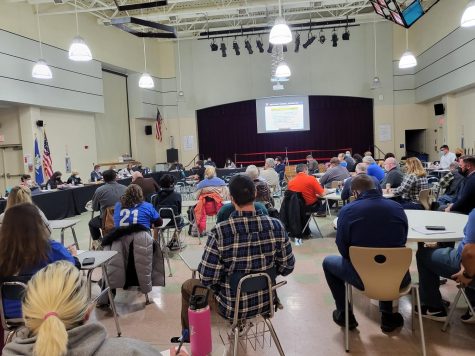Student’s Mental Health: Is WHS Doing Enough?
February 4, 2022
While there are various mental health supports offered at Waterford High School, many students are unaware of these programs. Over 60% of the 54 students who took an anonymous survey on mental health resources at WHS said they weren’t aware of any support from the school. Most students know only about the guidance counselors who the school employs, but those students explain that they feel uncomfortable reaching out for school support. One student who responded to an anonymous survey said they “would like for WHS as a whole to be more understanding of the situations of students.” Another added, “for me, I don’t want to speak to any teachers about how I’m feeling.” Various other students conveyed feeling anxious when considering seeking out support due to the school’s atmosphere. One student urged the school to “create a better environment for students.”
Even for the students who feel comfortable getting help, many don’t know that the school has any programs in place. Over 60% of the 54 students who took the survey said they weren’t aware of any support from the school. Due to annual meetings with students, most kids are aware of their guidance counselors. These meetings typically focus on plans for the future, including university and career paths. The guidance staff, however, is also trained in various other areas to help students. However many students don’t reach out. They aren’t aware of the other programs or how to access them leaving some students feeling alone and isolated. The students who knew of these programs said that “the schools should be putting more effort into these programs, so that the kids know that the school cares and wants to help.” Respondents said that “making the support easier to access would benefit everyone. The current process can seem a bit daunting to students, so they simply don’t start the process.”
On the survey, students were given the chance to express what they would like to see WHS doing better, and there were clear patterns in the responses. Many people responded with work related issues. One student said that they would like for the school to “give less homework. It sounds dumb but the amount of stress kids have is very detrimental to students’ mental health.” Another student suggests staff should “converse with fellow teachers about large amounts of work being assigned at the same time.” A third person explained WHS should “not make school as stressful, [students are] assigned too much homework and are burnt out.”
Another common response was students asking for a later start to the school day. A particular student explained they “haven’t gotten more than 4 hours of sleep since school started, and [they] stay up for days stressed out over homework.” Even students who are able to get to bed early are exhausted. One response begs for a later start saying “we need sleep, we are teenagers. I care a lot about this. I really need sleep. I feel dead every single morning and all the way until fifth block, even though I go to bed around 10.” Teenagers are expected to spend time with family and friends, participate in extracurriculars, do homework, and still get up in time for school. It is a lot of pressure on young adults and spending all day drained definitely doesn’t help the issue.
A considerable number of responses explained that they felt the school didn’t genuinely care for the kids. One person explained that “All they are doing is teaching us there is a problem. They aren’t fixing the problem or helping it.” Someone else said they “just don’t really see or feel anyone go out of their way to do anything.” When struggling with something, it can be scary to seek help out. The best way for someone to receive the help they need is to be offered. While the school has programs in place, many students expressed that the staff running them feel distant. That feeling makes seeking help even more frightening.
Other smaller patterns that were prevalent include not going to kids’ parents with every issue, especially private matters. Another was students asking to keep the semester schedule rather than switching to a trimester program. A third minor suggestion was giving more of a break weekly. That could be Wednesdays or Fridays off, shorter days, or something else of that nature to give students time to catch up on work or just rest from the stress.
The staff at WHS attempts to help, but the student body sees numerous places where they could improve. Many responders mentioned that they felt like the school staff didn’t listen to student thoughts or concerns regarding issues that impact students: “If the school took the time to hear our arguments, the atmosphere would improve drastically. These issues are impacting us, but the administration is making choices without taking into consideration US. They aren’t living as teenagers in this age, and they need to work with students if they are going to actually help.”



